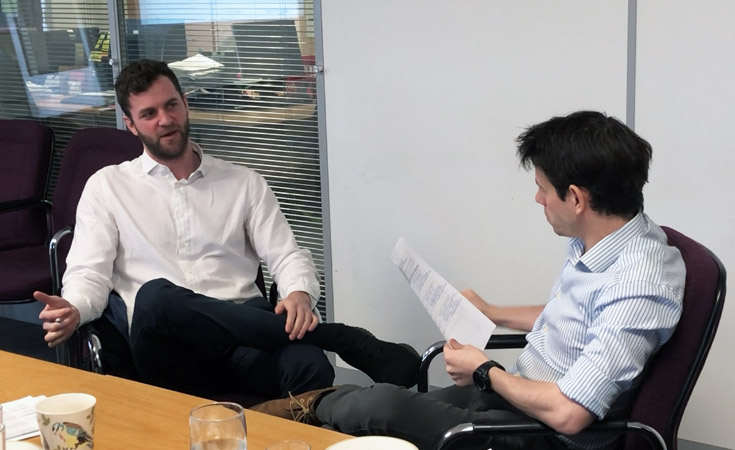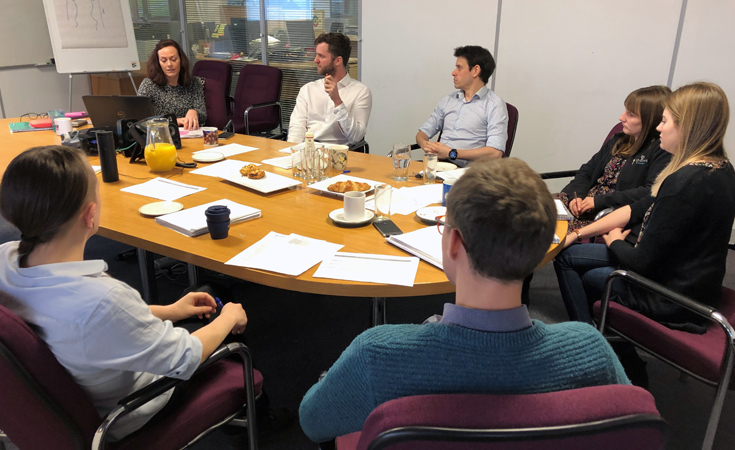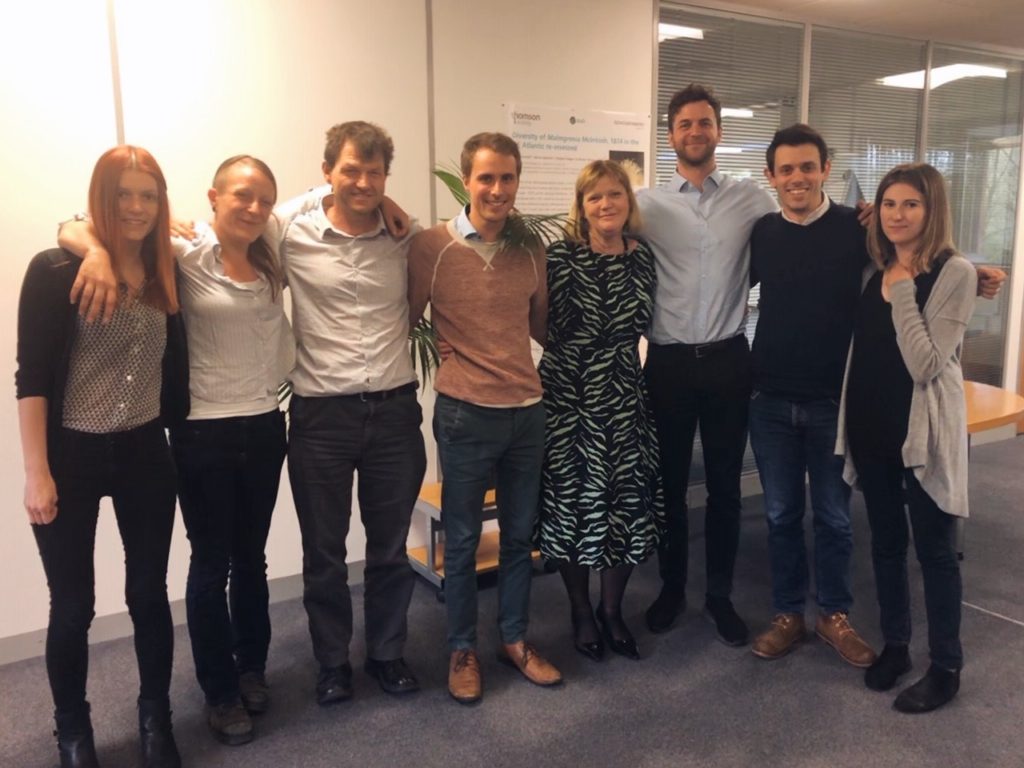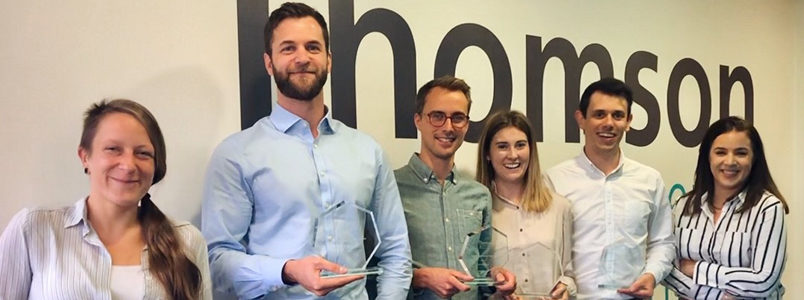Here at Thomson, we recognise the power of effective leadership, which is why we invest heavily in people and their development, from technical to leadership capability. So, what does our Leadership Development Programme look like and how do we nurture our leaders of the future? The Center for Creative Leadership recognises mentoring as one of the key elements of effective leadership development. So, what exactly do we mean by mentoring, and what makes mentoring in leadership development successful?
The mentoring process

Unlike a typical management relationship, mentoring works on a voluntary basis on both sides. It is semi-structured guidance, providing an opportunity to share knowledge, skills and experience, assisting others to grow and develop in their careers or leadership journeys. Motivation and empowerment play a key role in mentoring relationships, helping others identify issues and the best ways to solve them, as well as to find the right goals, passions and ways to reach them.
As part of our Leadership Development Programme, we ran a successful mentoring scheme where each delegate was matched with a member of the Senior Leadership Team as a mentor. This mentoring relationship complemented the delegates’ learning by drawing on and applying the knowledge and experience of a more experienced leader.
Creating effective mentoring in leadership development
There are several factors to consider when it comes to the effectiveness of mentoring in leadership development. First and foremost, it is crucial that from the beginning both parties have a good understanding of what mentoring is, as well as what it isn’t, in order to make the relationship as effective as possible.
Establishing expectations and responsibilities, communicating the desired outcomes and how both parties will be held accountable will put the relationship on the right track from the start.
Three key elements of a successful mentoring relationship
Confidentiality and Trust
Confidentiality and Trust are very important aspects of a successful mentoring relationship. Both, the mentor and the mentored must feel confident that none of the information shared will negatively impact either party.
This doesn’t mean that everything and anything will and should be shared. Establish at the beginning what is and isn’t shareable. A recent IJTD study shows that trust between the mentor and mentored has been found to be key in the success of mentoring relationships and is closely linked to willingness to share experiences and being committed to the relationship.
Communication

Getting the frequency and way of communication just right might be a challenge to start with. For example, “do we have weekly or monthly meetings?”, “do we exchange emails here and there, or do we walk around the office building as and when needed?” The answer to these is of course “it depends.” The one useful tip is not to have meetings for the sake of meetings. Instead, know the agenda, questions and issues in advance and bring clarity and focus to the meeting, in order to get the most out of it. Often, the time of the mentor and the mentored is precious, so it’s important not to waste any.
Feedback
Being open to constructive feedback and ready to recognise learning opportunities is key to success. Throughout the mentoring relationship, there will be many times the delegates are likely to receive constructive criticism. By entering a mentoring relationship, the delegates implicitly agree to be given feedback all the time. This is often one of the biggest challenges for new leaders.
On a similar note, being able to give constructive feedback is another challenge delegates often face – observe your mentor delivering feedback and note the techniques. Don’t forget to ask them for tips if you’re facing a challenging conversation with your direct report.
“The Leadership Development Programme exposed that I responded poorly to negative feedback, now I welcome it.”
– Oliver Silver, Senior Ecological Consultant.

Our Leadership Development Programme benefited greatly by having a mentoring scheme in place to support the delegates’ learning and leadership development. However, this isn’t the only way we develop our leaders here at Thomson.
The Leadership Development Programme consisted of many exciting initiatives, including internal and external speakers, some of which were Lyn Leahy, Brad Waldron and Marcus Child. We also incorporated some online learning, a couple of challenging projects the group could sink their teeth into, some great monthly reading recommended by our senior leaders, as well as work around self-awareness using a psychometric assessment tool.
Your next move
If you would like to find out more about our Leadership Development Programme updates and about the fantastic work we do, check out the Thomson LinkedIn page. Another useful tool is The Center for Creative Leadership
Are you seeking your next career move? Then Thomson may have a great opportunity for you. Check out our Careers page now.











